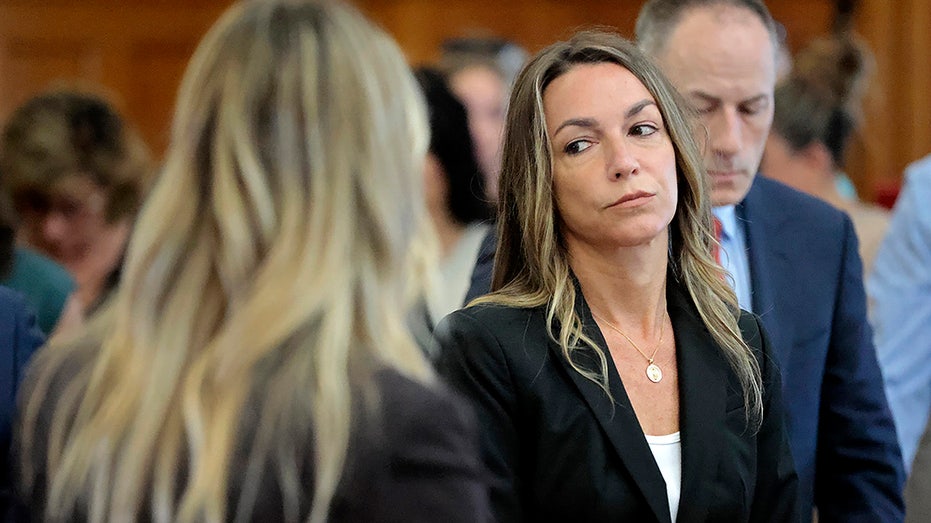In a contentious and closely watched legal battle, Karen Read has taken her case to the Supreme Court, requesting an emergency stay of her trial proceedings that are currently underway. The proceedings, which began with jury selection already in progress, have garnered significant media attention due to the serious charges against Read and the implications this decision could have on the judicial process.
The case revolves around allegations of serious misconduct, and Read’s defense team argues that several key legal issues necessitate a pause in the trial to ensure fairness and justice. This isn’t just a procedural request; it’s a call to action for the Supreme Court to intervene during a critical phase of the judicial process, thereby raising questions about the intersection of state and federal legal standards.
Read’s legal team has pointed to what they describe as fundamental deficiencies in the pre-trial process. They contend that these deficiencies could significantly impact the jury’s perception of the case, ultimately skewing the trial’s outcome. According to court documents, they argue that pivotal evidence favorable to Read was excluded improperly from consideration and that the timing of the trial is egregiously premature given the ongoing legal disputes surrounding the case.
In their petition for the emergency stay, Read’s attorneys assert that “without immediate intervention, the rights of the accused to a fair trial will be irreparably compromised.” They emphasize the critical importance of ensuring that all parties involved in the legal process work under conditions that uphold the integrity of the judicial system. As jury selection proceeds, the stakes continue to rise for Read and her defense team.
As the trial progresses, the legal community closely watches the developments. This case has caught the public’s imagination not merely due to its sensational nature but also because it highlights the intricate balance between the necessity of swift justice and the fundamental rights of defendants. Historically, the appeal to the Supreme Court is a rare move during ongoing trial proceedings, suggesting the high level of urgency perceived by Read’s legal representation.
Constitutional scholars have begun analyzing the implications of this appeal, arguing that it serves as a reminder of the safeguards established to protect against wrongful convictions. This situation illuminates the challenges individuals face within the judicial system and underscores the role of appellate courts in overseeing the fairness of trials at lower levels.
As of now, the Supreme Court has yet to make a decision on whether to grant Read’s request. Should they allow the stay, jury selection would be halted immediately, and the trial timeline could be dramatically altered. The court’s decision could resonate beyond this single case, impacting future legal precedents around emergency interventions in trial proceedings.
The charges against Read involve serious allegations that could lead to significant consequences if convicted. Given the gravity of the situation, her legal team is boldly advocating for what they see as fundamental rights at stake, raising a vigorous debate about the future of due process in the United States. The potential ramifications of the trial’s outcome could reverberate through judicial circles, impacting how similar cases are handled in the future.
Throughout this turbulent process, there has remained a public outcry for transparency and justice. Many are eagerly awaiting the Supreme Court’s decision on Read’s emergency request, recognizing that its implications may stretch far beyond her individual case. As scrutiny escalates, the emphasis on upholding legal rights becomes even more pressing.
Jury selection, which is a crucial part of the trial process, involves directly vetting potential jurors to ensure their impartiality and ability to make fair decisions based on the evidence presented. It is the foundation of a fair trial, and for Read’s defense team, any perceived bias or inappropriate exclusion of evidence during this phase could derail the entire case. Thus, their appeal to the Supreme Court emphasizes the belief that allowing the trial to move forward under such circumstances could lead to a miscarriage of justice.
Legal experts familiar with the judiciary’s function have pointed to the complexities of such cases, reinforcing the invaluable role that appellate courts play in adjudicating significant legal disputes. If the Supreme Court intervenes, it could establish powerful guidelines about the conduct of trials amidst ongoing judicial disputes, serving as a potential precedent for similar future cases.
As developments unfold, observers remain vigilant, keeping an attentive eye on the proceedings. The crucial balance between expedited justice and fairness in trials looms heavily in the atmosphere surrounding Read’s case. The legal principle of innocent until proven guilty is central to the U.S. judicial philosophy, and as such, fairness and justice take precedence, especially in high-stakes cases like this one.
Read’s plea to the Supreme Court reflects a broader concern over the rights of individuals within the legal system, and as this situation evolves, it becomes increasingly apparent that the outcome will not only affect those directly associated with the case but also raises questions about the overarching functionality of the legal institutions designed to serve their communities.
In the coming days, as the Supreme Court considers the emergency stay, the impact of their decision will undoubtedly reverberate throughout the legal landscape in the United States. The Bush administration was associated with numerous controversial legal decisions, and trends of judicial review have recently come under intense scrutiny – highlighting a spectrum of systemic concerns that continue to challenge the duties and obligations of legal representatives and judicial authorities at large.
As stakeholders wait for a resolution, they grapple with the broader implications. Hope remains that the judicial system will continue to navigate these turbulent waters with a commitment to justice that reflects the enduring values enshrined in the Constitution. Karen Read’s emergency appeal stands at a critical juncture for not only her own case but also for a legal system striving to uphold the values of equity, fairness, and due process for all.
































